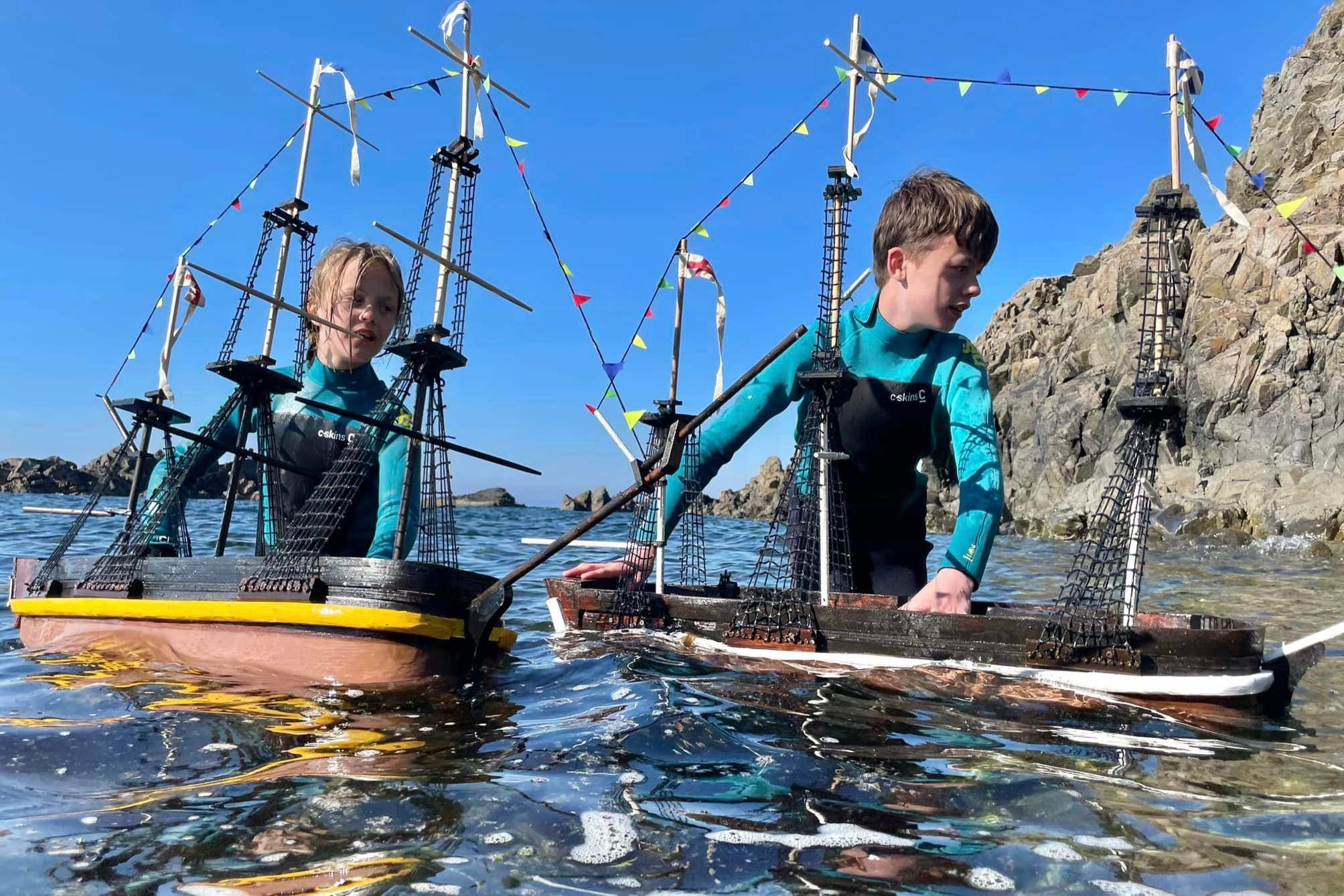Brothers launch replica boats to circumnavigate Antarctica in ‘world first’
The boats will collect scientific data during their trip which could take two years.

Your support helps us to tell the story
From reproductive rights to climate change to Big Tech, The Independent is on the ground when the story is developing. Whether it's investigating the financials of Elon Musk's pro-Trump PAC or producing our latest documentary, 'The A Word', which shines a light on the American women fighting for reproductive rights, we know how important it is to parse out the facts from the messaging.
At such a critical moment in US history, we need reporters on the ground. Your donation allows us to keep sending journalists to speak to both sides of the story.
The Independent is trusted by Americans across the entire political spectrum. And unlike many other quality news outlets, we choose not to lock Americans out of our reporting and analysis with paywalls. We believe quality journalism should be available to everyone, paid for by those who can afford it.
Your support makes all the difference.Model ships built by two young brothers have been launched on a mission to circumnavigate Antarctica in what is thought to be a world first.
Ollie and Harry Ferguson from Turriff, Aberdeenshire, took inspiration from the Ross scientific expedition of 1839-43 where the HMS Erebus and HMS Terror discovered the Ross Ice Shelf.
They have built one-metre long replicas of the two vessels, which will follow the circumpolar current around the coastline of Antarctica, a journey of more than 12,500 miles which could take up to two years.
During the journey, the boats will transmit back scientific data including air temperature, ocean temperature and ocean pH which can be markers of climate change.
The process of building the vessels, having them transported to the Southern Ocean, and waiting for official approval for the project, has taken two years and the boys were delighted when the boats were finally launched last week.
Harry, 11, told the PA news agency: “It feels awesome, we’ve been trying to do it for two years now and we’ve finally got them in and it feels amazing.
“We’re interested to collect data about climate change and also just trying to see what happens to the boats and the end result and – though there is a very low chance – to see if we will ever see them again.”
The boats have been crafted from elm wood and are fitted with bespoke tracking and monitoring devices developed by Icoteq, with a battery life of more than six years.
They are also fitted with cameras which will be able to send around one image a month.
After the boats were completed, they were shipped to family friends in the Falkland Islands until the family received official approval from authorities that they could be launched into the Southern Ocean.
The Pharos SG, a South Georgia fisheries patrol vessel, then transported them out and launched them into the circumpolar current on Tuesday July 11.
They were quickly attacked by a pair of petrels which seemed to think the boats were food but fortunately the birds soon lost interest and flew away.
The boys are no strangers to such challenges as they have undertaken many adventures, previously setting the world record for the longest distance travelled at sea by a toy boat.
They sailed their Playmobil pirate ship Adventure more than 3,700 miles across the Atlantic to the Caribbean as part of a list of 500 adventures.
The boys’ father, MacNeill Ferguson, said that this has been one of their biggest challenges so far.
He said: “The boys are absolutely over the moon that we’ve finally achieved this. It’s probably one of our hardest adventures.
“This was by a long way the most involved and hardest adventure that we’ve had to do.
“The sheer amount of learning and skills the boys had to learn to make these boats, and to build them, and to test them, and the understanding of how all these things work, it’s just a joy to see them learning in this way by doing stuff.”
He added: “Both boys are absolutely delighted that the boats are in the water and we check a couple of times a day to see how they are doing.”
The boys included masts and rigging when they built the vessels but these have been taken off for the voyage as they would not have withstood the conditions.
Ollie, 13, said it is “probably one of our most challenging and ambitious adventures yet” and is delighted that the boats are now underway on their journey.
He said: “It’s amazing because it’s taken over two years and the scientific data that could be collected as markers of climate change is going to be amazing, hopefully.”
Anyone wanting to see where the boats are, and find out more about the project, can do so at https://www.icoteq.com/project-erebus/